A Guide
by Jess Erdman, Content Marketing LeadMarch 2023

Creating the ideal eCommerce recommendation requires a mix of technology and creativity.
YesPlz used technical expertise and creative ideas to create a recommendation engine for two fashion retailers, W Concept and The Handsome. Both retailers have extensive and complex product catalogs.
What's the difference between a "good" and "poor" eCommerce recommendation?
A "good" recommendation requires various factors such as: the shopper's profile, the stage of the user journey, and the product viewed.
A "poor" recommendation is not relevant to the user's tastes. In many cases, it is a product that is too similar to encourage product discovery. A shopper viewing a navy blue polo shirt does not want to only see the same shirt in different colors. A better recommendation would show products across categories that fit the same vibe or style.
Curating the perfect product can be difficult for retailers with too many products. This can lead to many products getting lost in the mix of product discovery.
AI-powered product recommendations can keep customers on-site for longer, resulting in higher basket sizes, and increase overall conversions. A well-trained AI algorithm can return product recommendations that are relevant to the original search query.
AI recommendations can also recognize search intent and timeliness--if a shopper is searching for a summer dress, recommended products shouldn't include winter clothing.
Another major problem with product recommendations is that they're not optimized for search intent. For example, shoppers that are already on a check-out page should see complementary products to effectively cross-sell.
Traditional product recommendations vs. AI recommendations
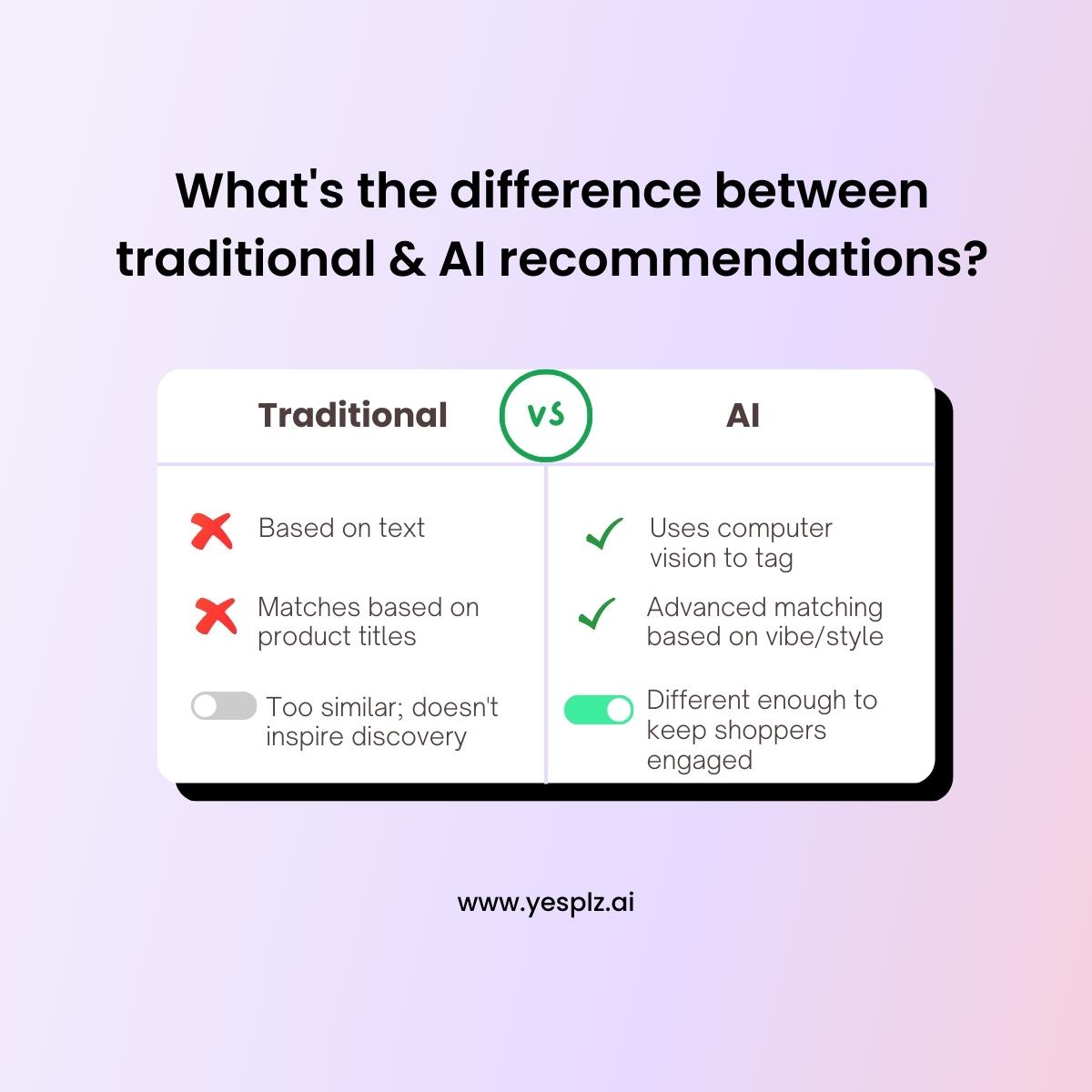
Traditionally, recommendations rely on matching text information to product and brand names, resulting in limited and mismatched suggestions.
But, with AI image tagging (powered by computer vision), recommendations can go beyond brand and title matching, and hone in on actual style curation that is similar to shopper tastes but different enough to guide shoppers to new products.
AI product recommendations can take into account key product attributes like fit, silhouette, and vibe. This makes the suggestion more relevant to the user by considering the "why" behind shopper behavior.
YesPlz AI recommendations are unique in that they're formed using two steps:
Step 1: Matching the key design attributes to products
Step 2: Re-matching the recommendation against vibe and occasion
YesPlz stands out from other solutions because of the unique double filtering system. And now, both The Handsome and W Concept are enjoying AI-powered recommendations that are accurate and relevant.
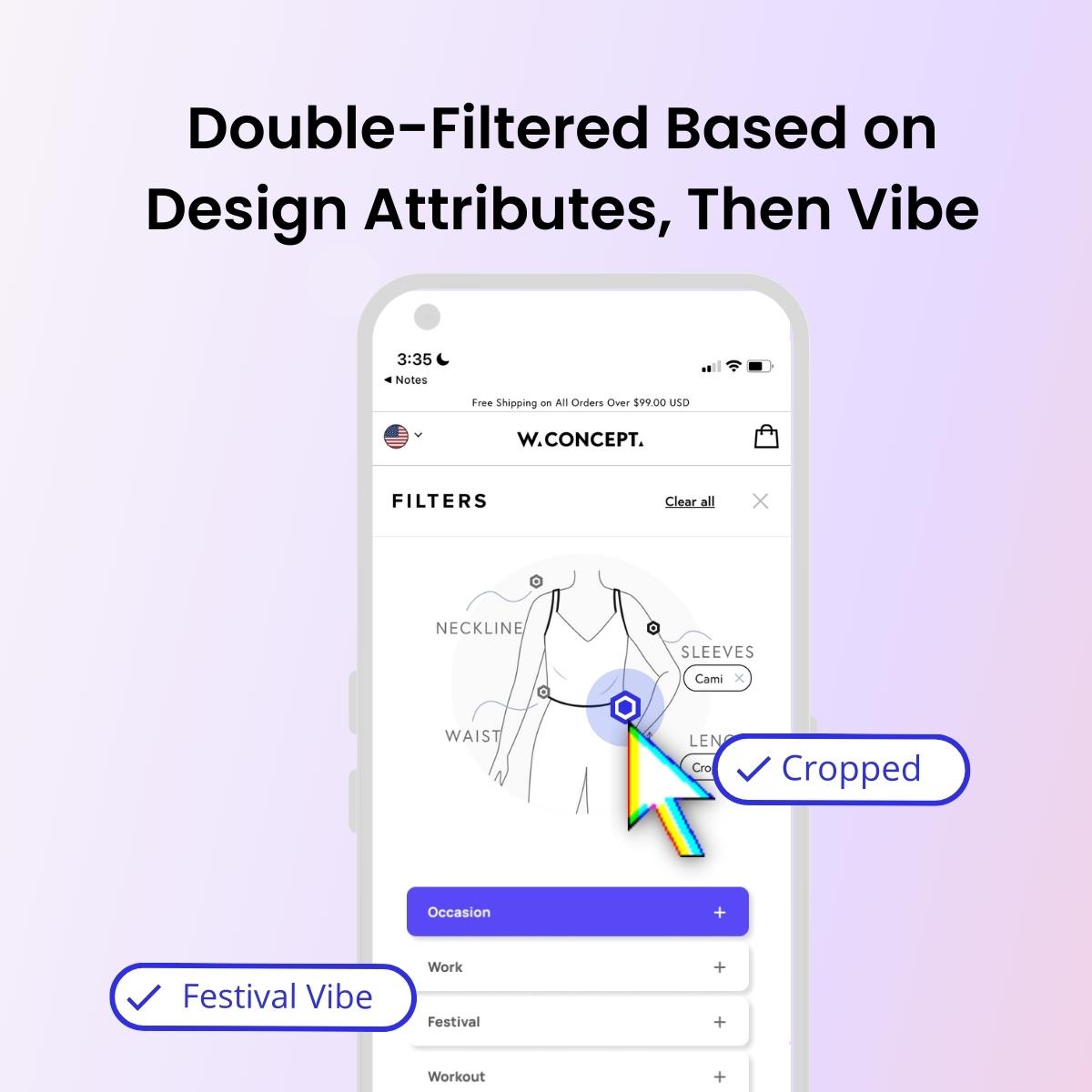
The Handsome had a common problem. Shoppers were only finding the most popular products. This meant much of their product catalog went undiscovered.
YesPlz partnered with The Handsome to create "Discovery of Taste".
It's a creative and interactive approach to help shoppers get better product recommendations.
All shoppers need to do is take a short quiz, swiping yes or no on their favorite products. Then, they receive curated recommendations based on their fashion preferences.
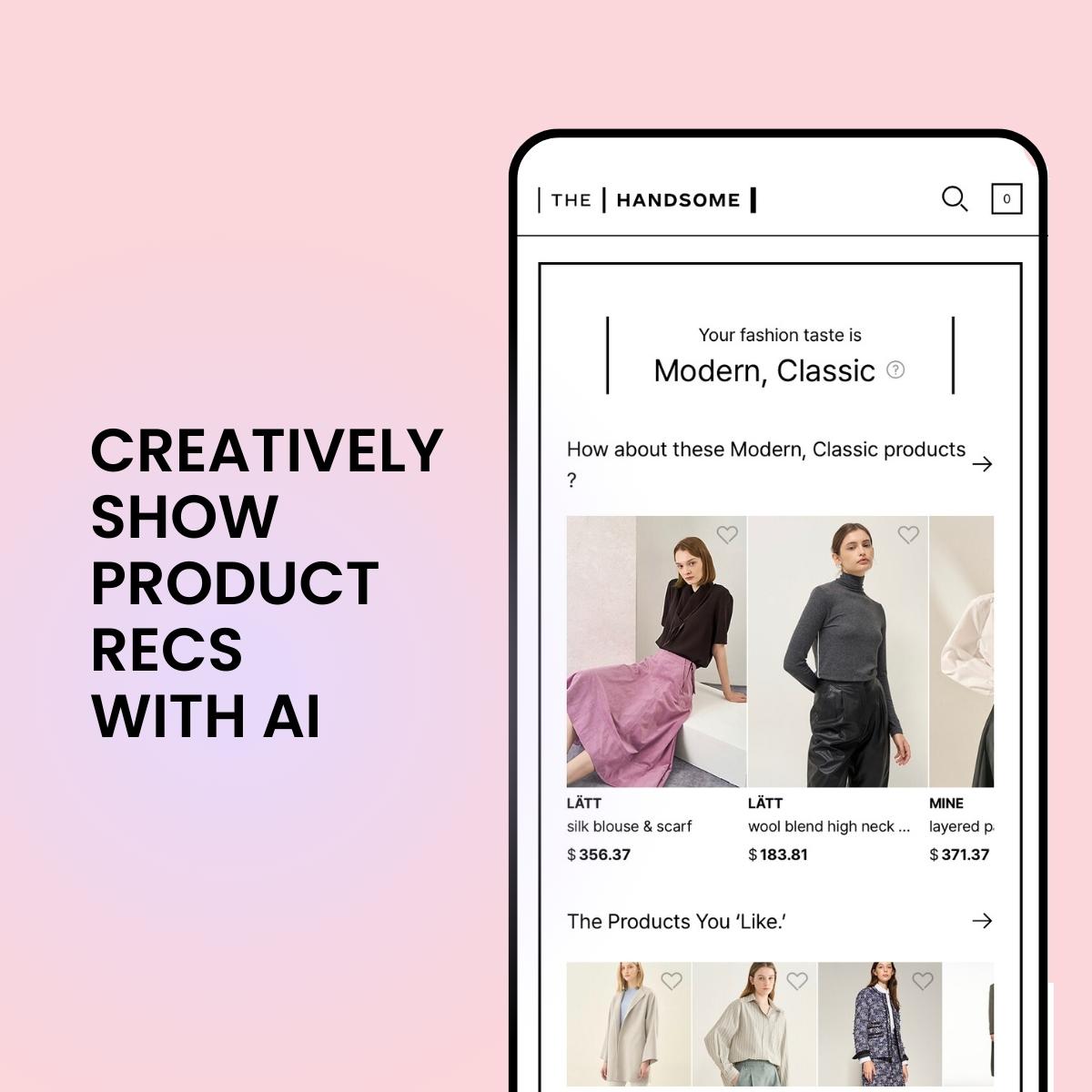
By thinking creatively about AI product recommendations, we can not only recommend good products, but create an entirely new way for shoppers to engage with retailers' products.
Collaborative filtering has a problem well-known in eCommerce: the "cold start" issue. It's challenging for algorithms to make recommendations for new users or products, leading to missed sales.
But, by combining collaborative filtering with similar recommendations, YesPlz customized the model to solve W Concept's cold start problem.
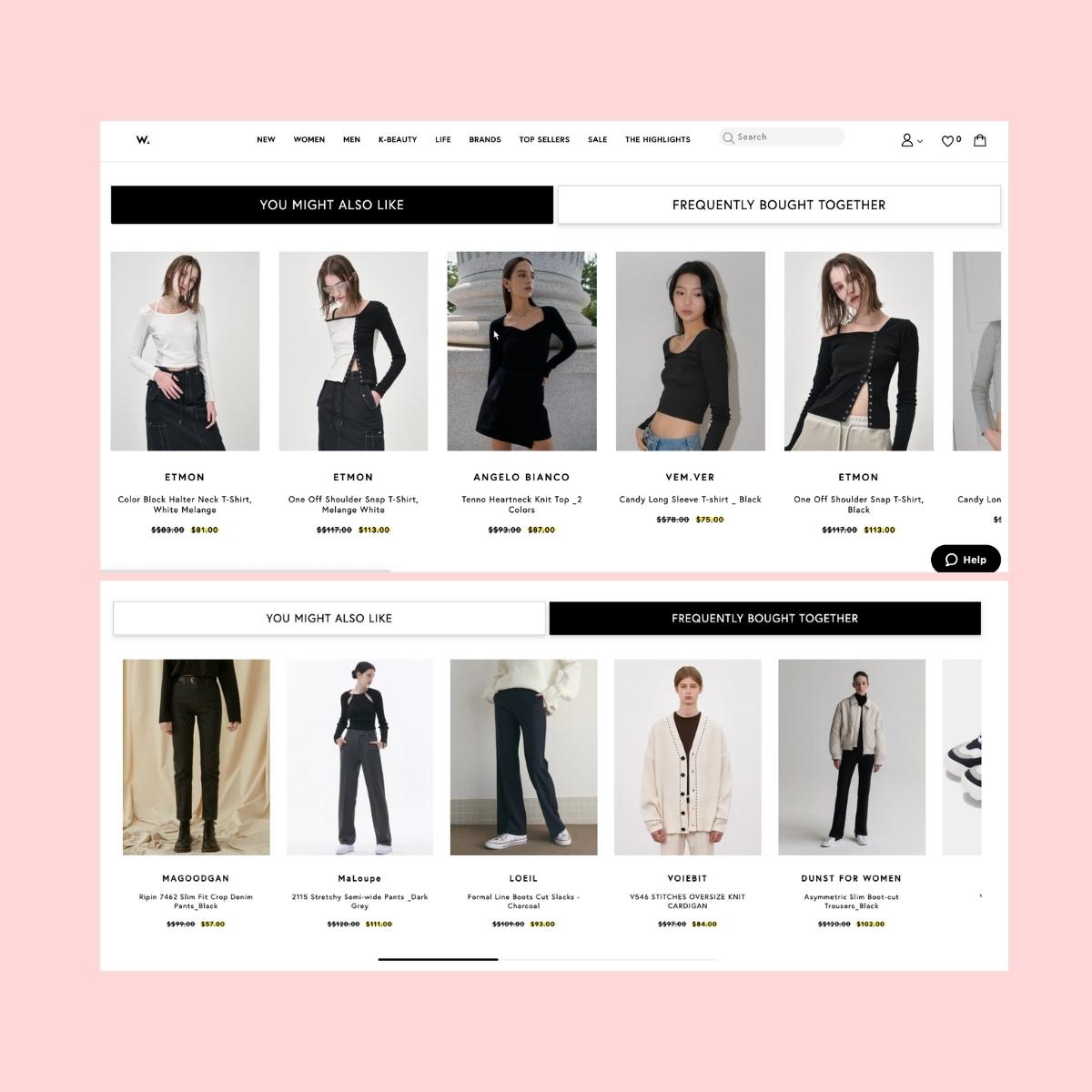
A combined AI product recommendation system can show off the full scale of a retailer's catalog.
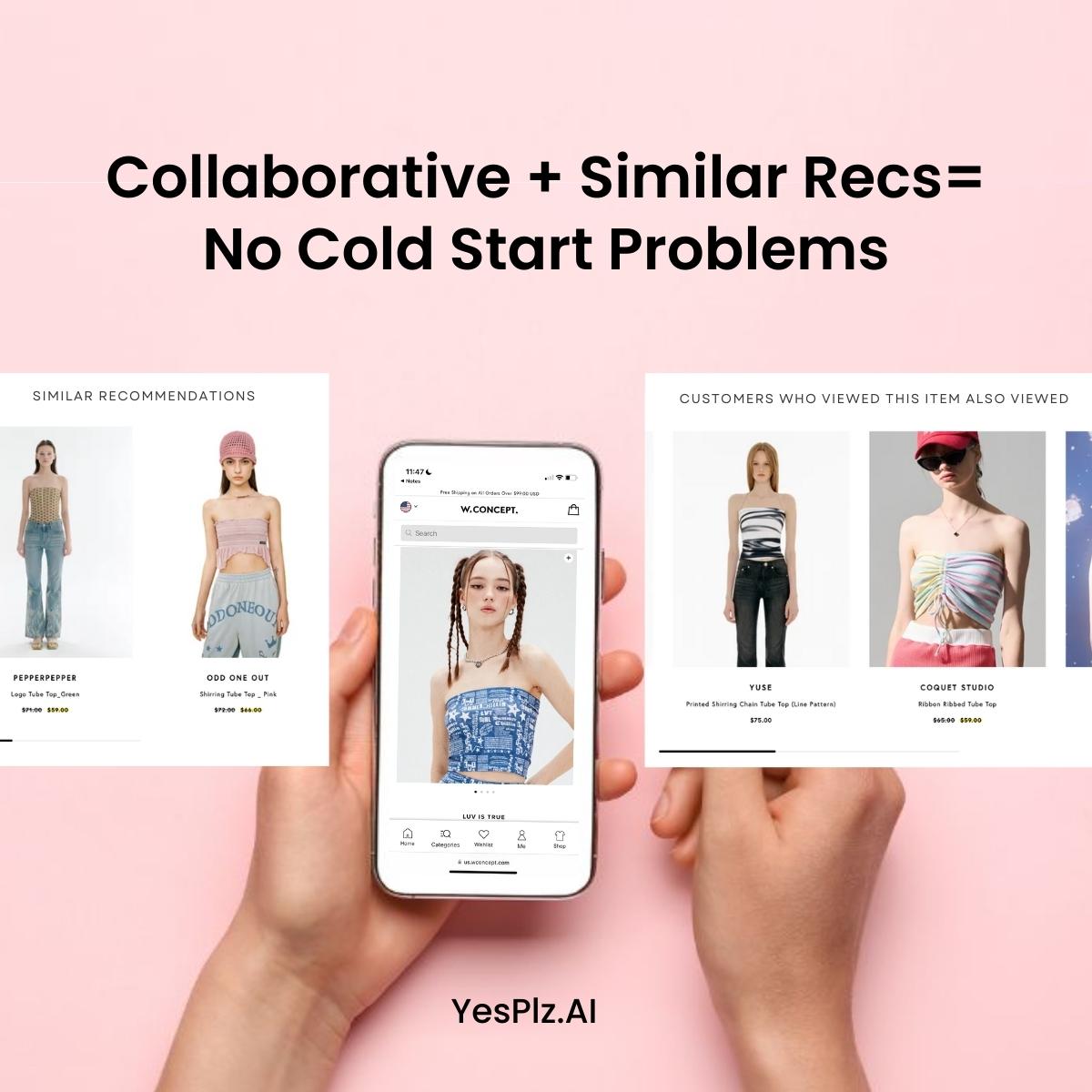
Personalized product recommendations are a necessity for retailers looking to improve their shopper engagement and product discovery experience. And, there’s real value as well–based on initial results, YesPlz clients have seen a +15% increase in sales generated and a +10% increase in average cart values.
The future of product recommendations will require both creativity and technology to create curated experiences.
Talk to YesPlz about building an AI-powered recommendation system that makes sense for your business.
Written by Jess Erdman
Content Marketing Lead
I'm passionate about creating cool content. The best part? I get to learn new things about fashion tech and ecommerce everyday. Have an idea or opinion about this article? Reach out at jess@yesplz.ai
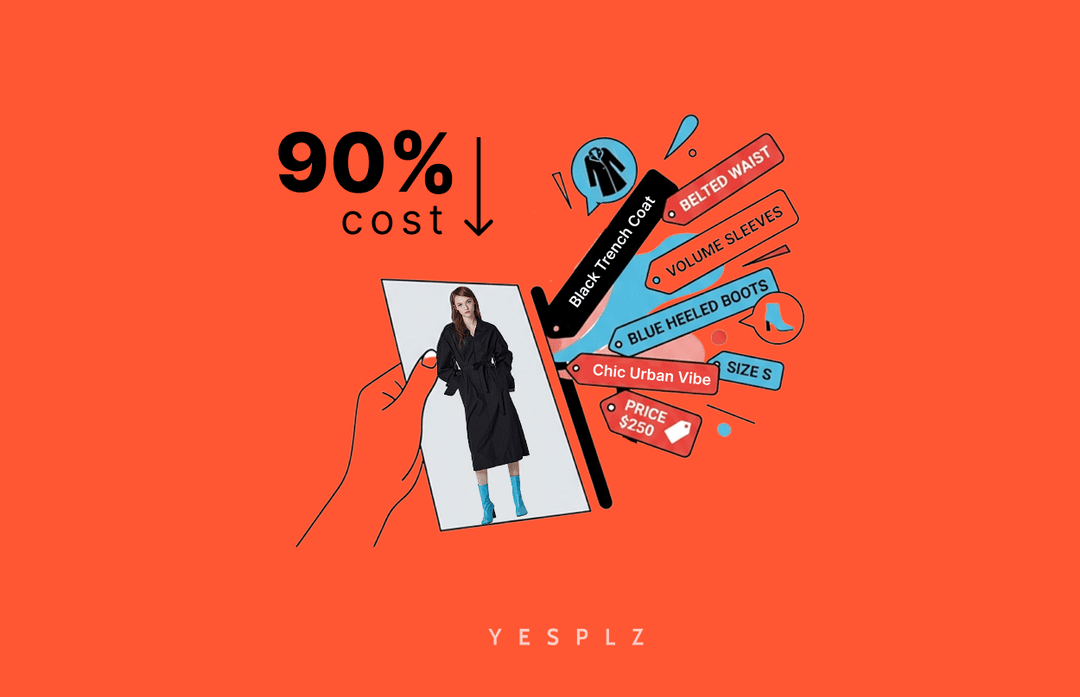
Inconsistent tags hurting sales? Self-service product tagging delivers accuracy and speed without enterprise prices. Tag products 10x faster at 90% lower cost.
by YesPlz.AI
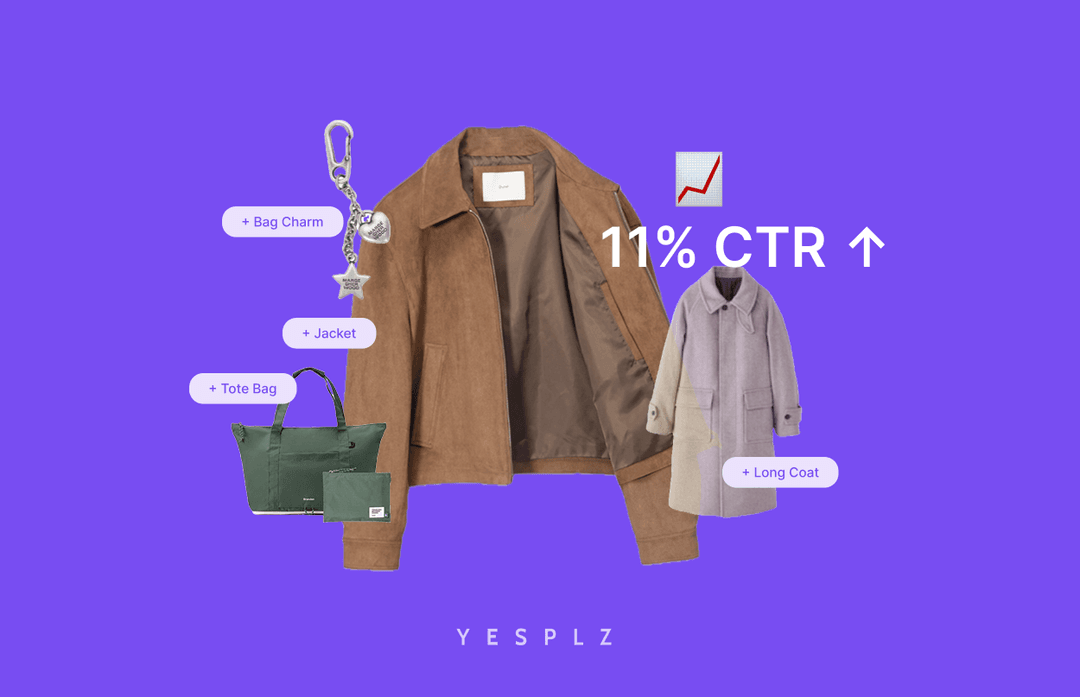
We analyzed 13,374 fashion searches. AI tagging increased product discovery by 22% and boosted clicks by 11%. Here’s what the data revealed.
by YesPlz.AI